Are you looking to streamline your logistics processes and ensure a smooth partnership? A well-crafted logistics services agreement is essential for clearly outlining roles, responsibilities, and expectations between parties. This document not only provides legal protection but also enhances communication, making it easier for everyone involved to achieve their goals. If you're interested in learning more about creating an effective logistics services agreement, keep reading!
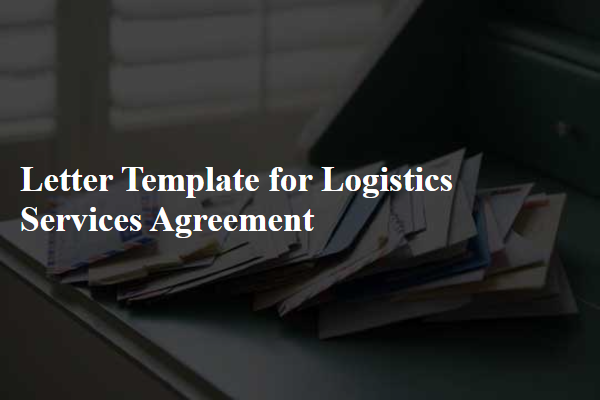
Contract Duration and Termination Clause
The logistics services agreement stipulates a contract duration defined as two years, commencing on January 1, 2024, and terminating on December 31, 2025. The agreement allows for early termination by either party with a written notice of at least 60 days prior to the intended termination date. In cases of breach of agreement terms or failure to perform obligations outlined in Section 5, immediate termination may take effect without prior notice. Upon termination, obligations related to confidentiality and liability outlined in Sections 7 and 8 will remain in force, ensuring protection of proprietary information and limiting exposure to damages.
Scope of Services and Responsibilities
The logistics services agreement outlines critical operational frameworks for efficient supply chain management. The scope of services includes transportation, warehousing, and inventory management. Transportation services such as freight forwarding utilize various modes, including road, rail, air, and sea, facilitating the movement of goods across domestic and international borders. Warehousing involves strategically located facilities, such as distribution centers in major cities, ensuring optimal storage solutions. Responsibilities encompass ensuring compliance with regulations, maintaining accurate inventory records, and implementing real-time tracking technologies for visibility. Additionally, service providers must prioritize safety standards and risk management strategies, preparing for potential disruptions in transport networks or supply chain bottlenecks. Effective communication protocols between stakeholders, including suppliers, customers, and logistics personnel, are vital to ensure seamless operations.
Payment Terms and Billing Cycle
In a logistics services agreement, payment terms outline the financial expectations associated with the transportation and storage of goods. Common billing cycles include monthly invoicing, where clients receive statements detailing all transactions within a specific month for prompt payment. Payment deadlines typically range from 15 to 30 days post-invoice issuance, ensuring timely cash flow for service providers. Additional provisions might include late payment penalties, often set at a percentage of the outstanding amount, ensuring compliance. Electronic payment options, such as bank transfers or credit card payments, facilitate efficient transactions, particularly in fast-paced logistics environments where timely delivery is crucial. Clear documentation of these terms fosters transparency and professional relationships between logistics providers and their clients.
Liability and Insurance Requirements
Logistics services agreements typically outline specific liability and insurance requirements necessary for protecting both parties involved in the transaction. For instance, the agreement may stipulate that the logistics provider must maintain commercial general liability insurance with limits of at least $1 million per occurrence to cover bodily injury and property damage during the transportation process. Additionally, cargo insurance ensuring coverage for goods in transit, often valued at 100% of the total shipment value, is essential to minimize the risk of loss or damage. Furthermore, the agreement may require the logistics provider to include the client as an additional insured on all relevant policies, offering extra protection against unforeseen incidents. The terms of indemnification will also detail the responsibilities of each party in the event of loss claims, ensuring a clear path for accountability and compensation should damages occur. Compliance with local regulations regarding insurance and liability will be crucial, especially in jurisdictions with specific legal frameworks governing logistics operations.
Confidentiality and Data Protection
Confidentiality and data protection are critical elements in logistics services agreements, such as those found in the transportation sector. Parties involved must ensure that sensitive information--like shipment details, customer identities, and pricing structures--remains secure, preventing unauthorized access or breaches. Laws such as the General Data Protection Regulation (GDPR) emphasize the need for strict compliance regarding personal data, mandating the implementation of appropriate technical measures. Non-disclosure agreements, outlining the obligations and penalties for breach, provide added layers of protection. Proper handling of personally identifiable information (PII) and adhering to both legal and ethical standards are essential for maintaining trust and safeguarding business interests.

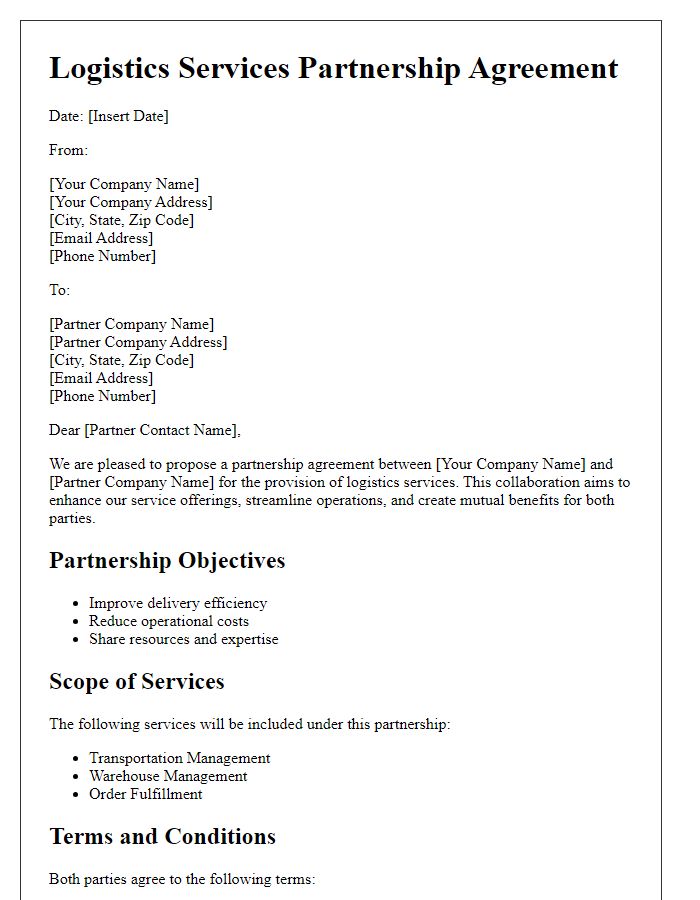
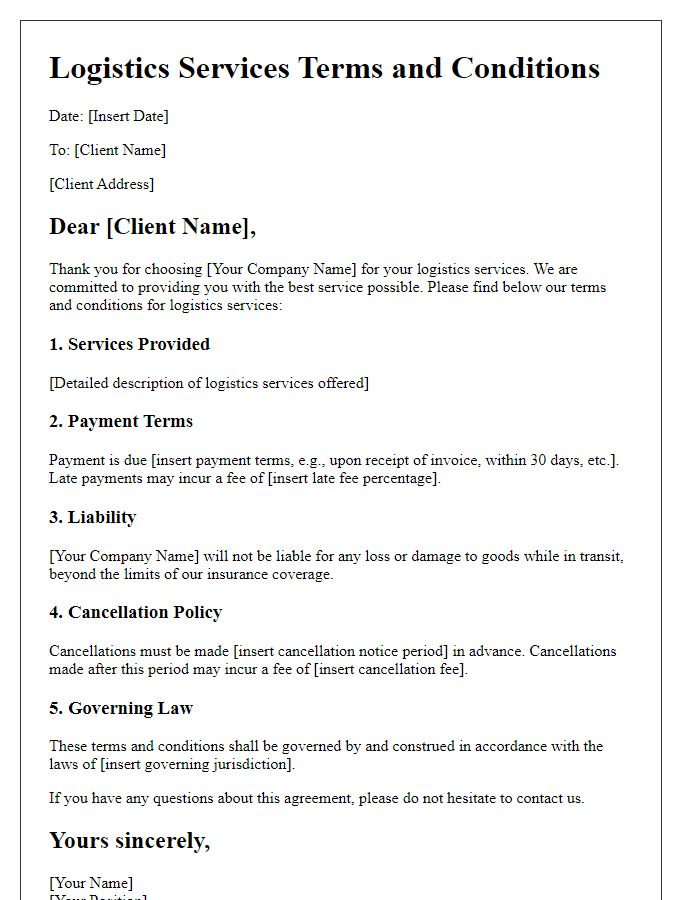
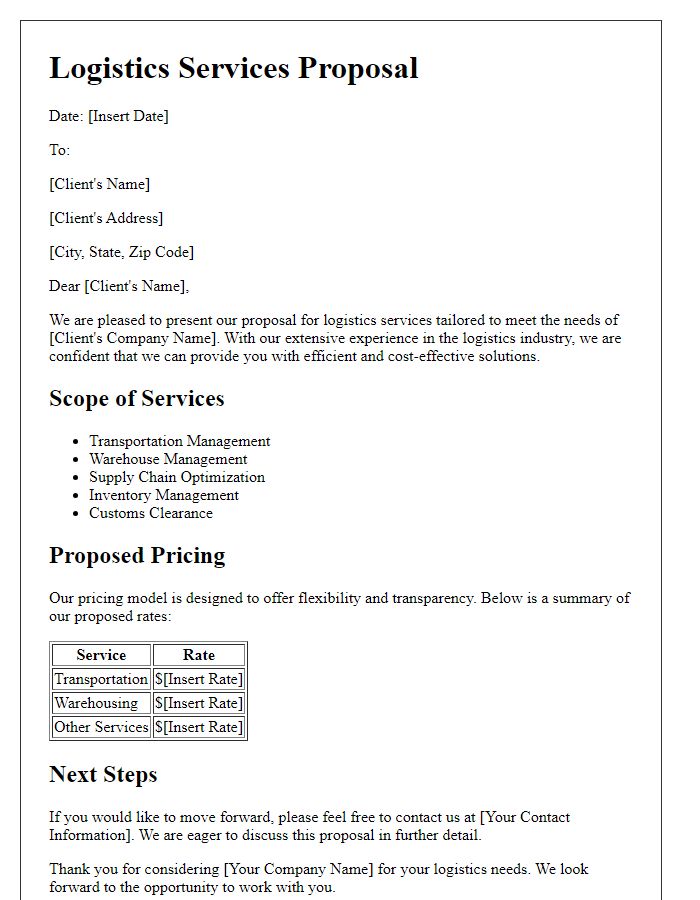
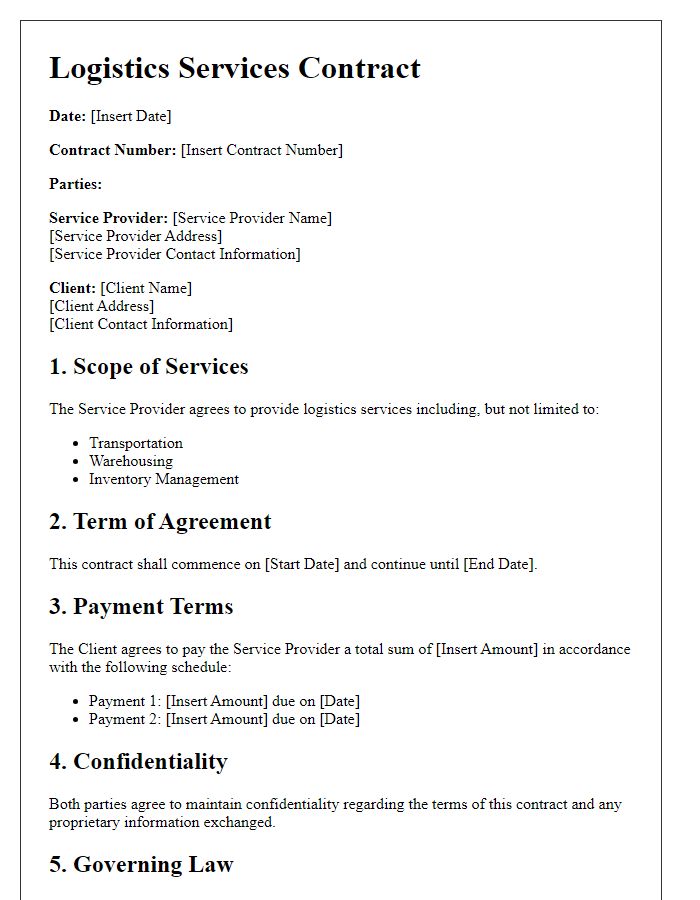
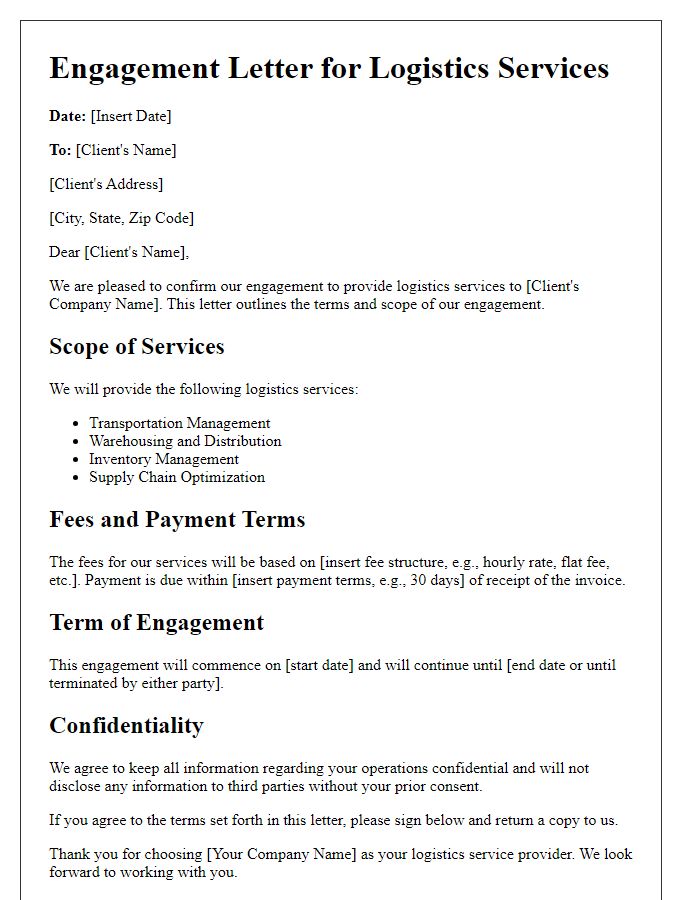
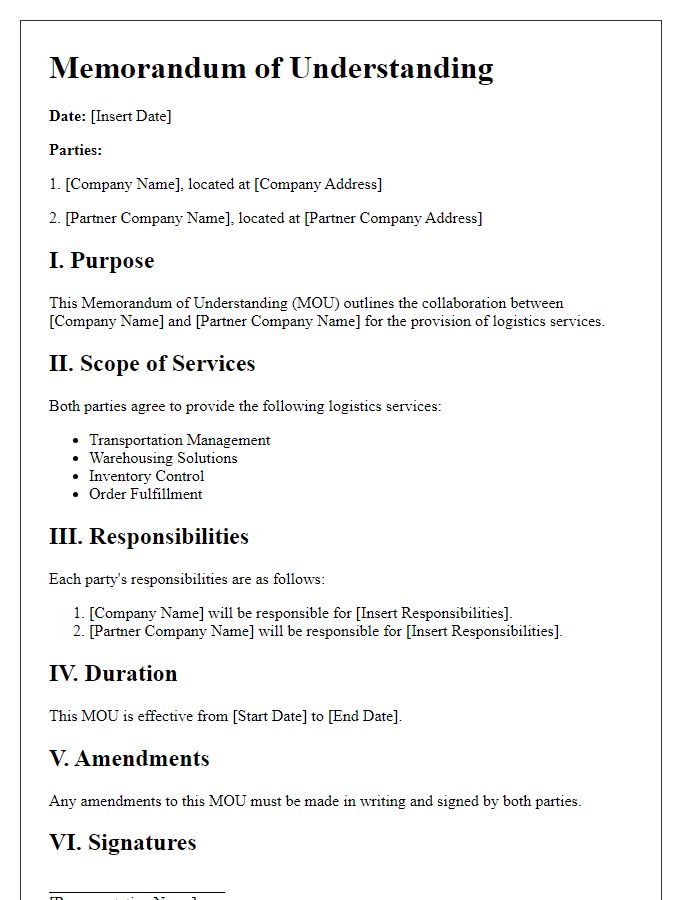
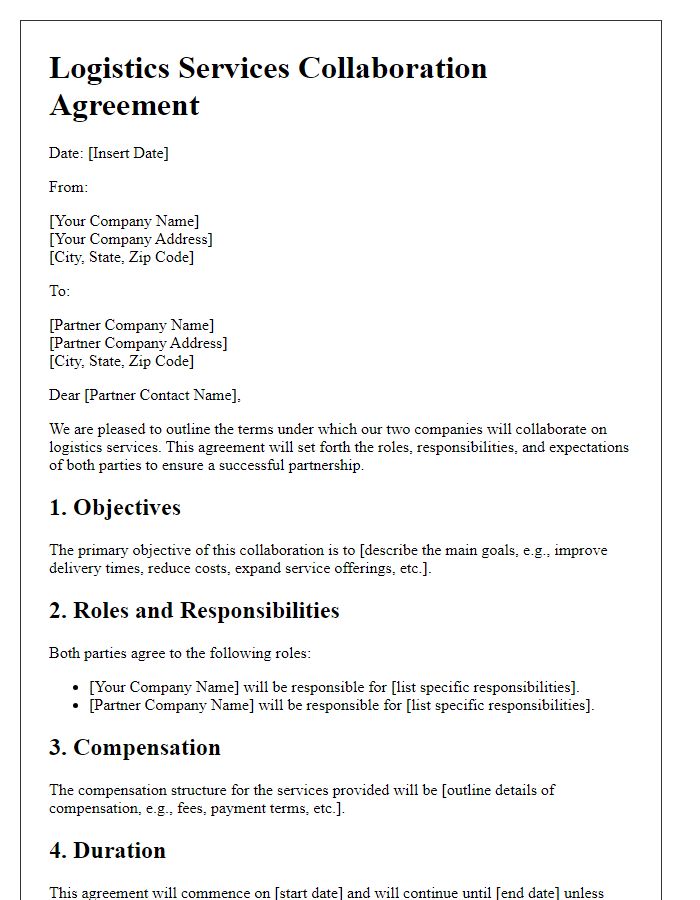
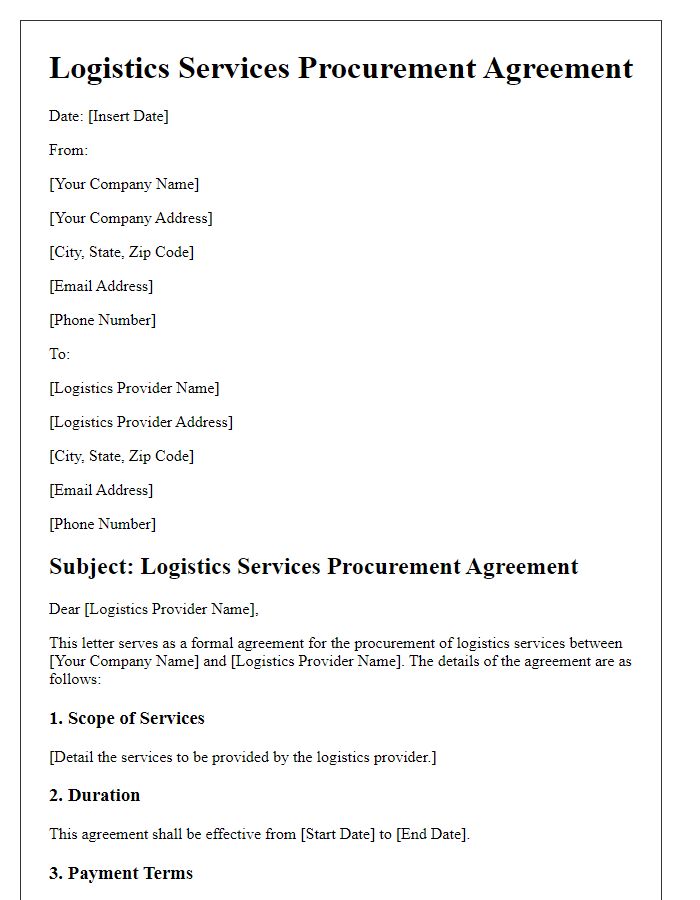
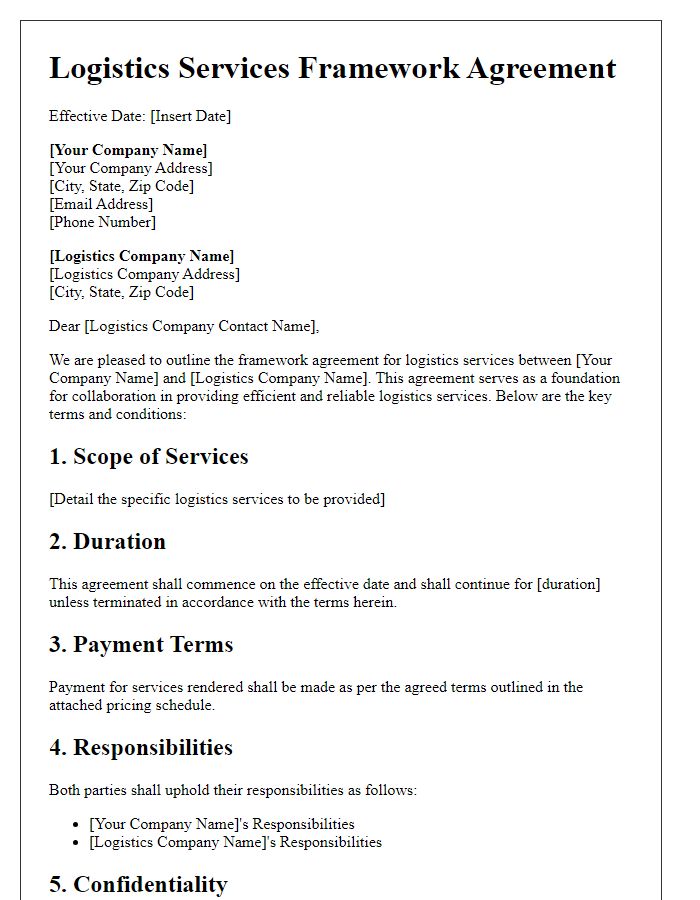
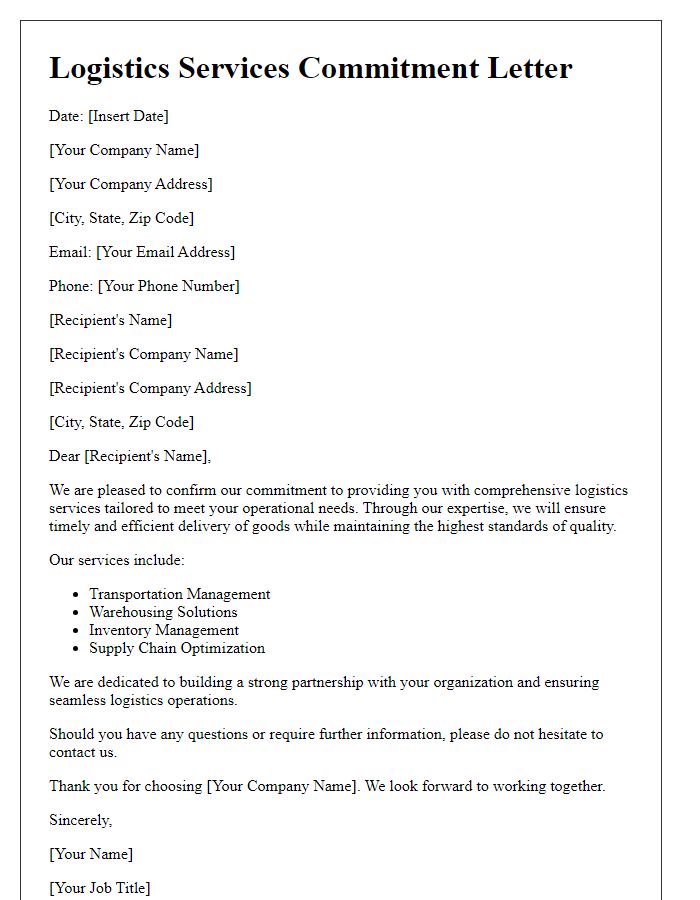


Comments